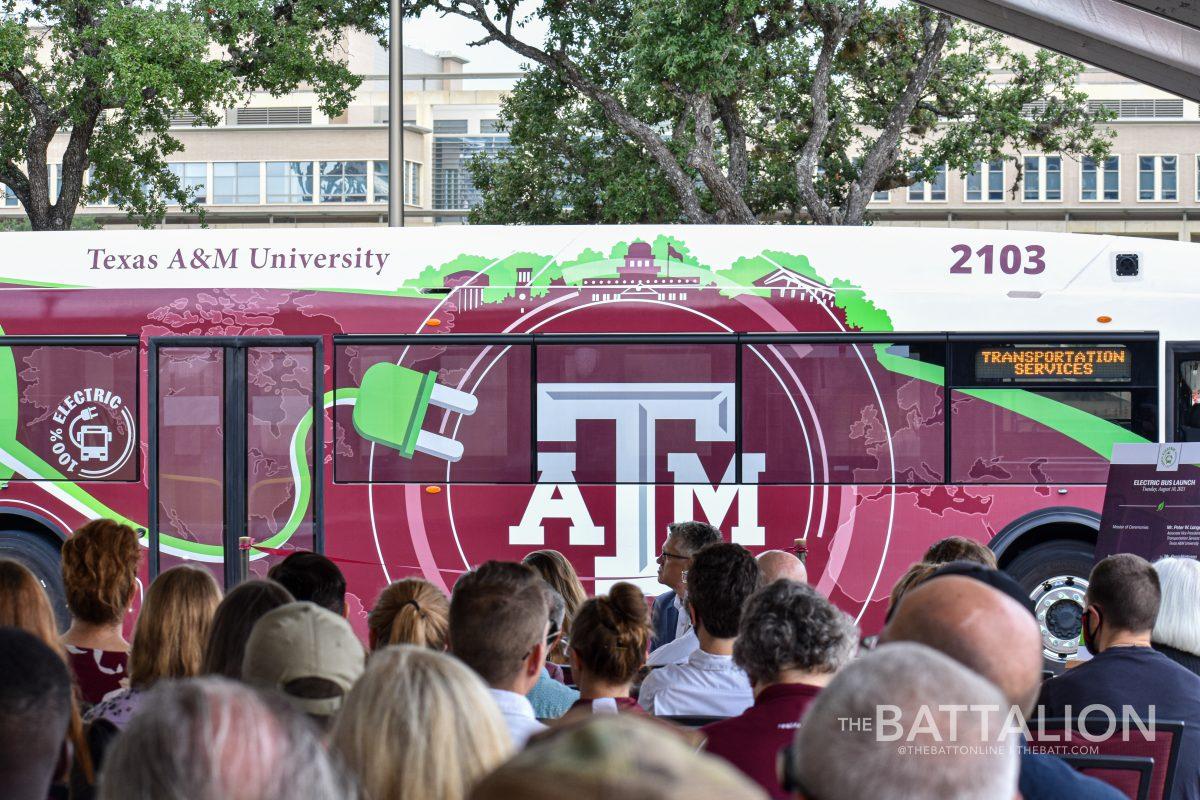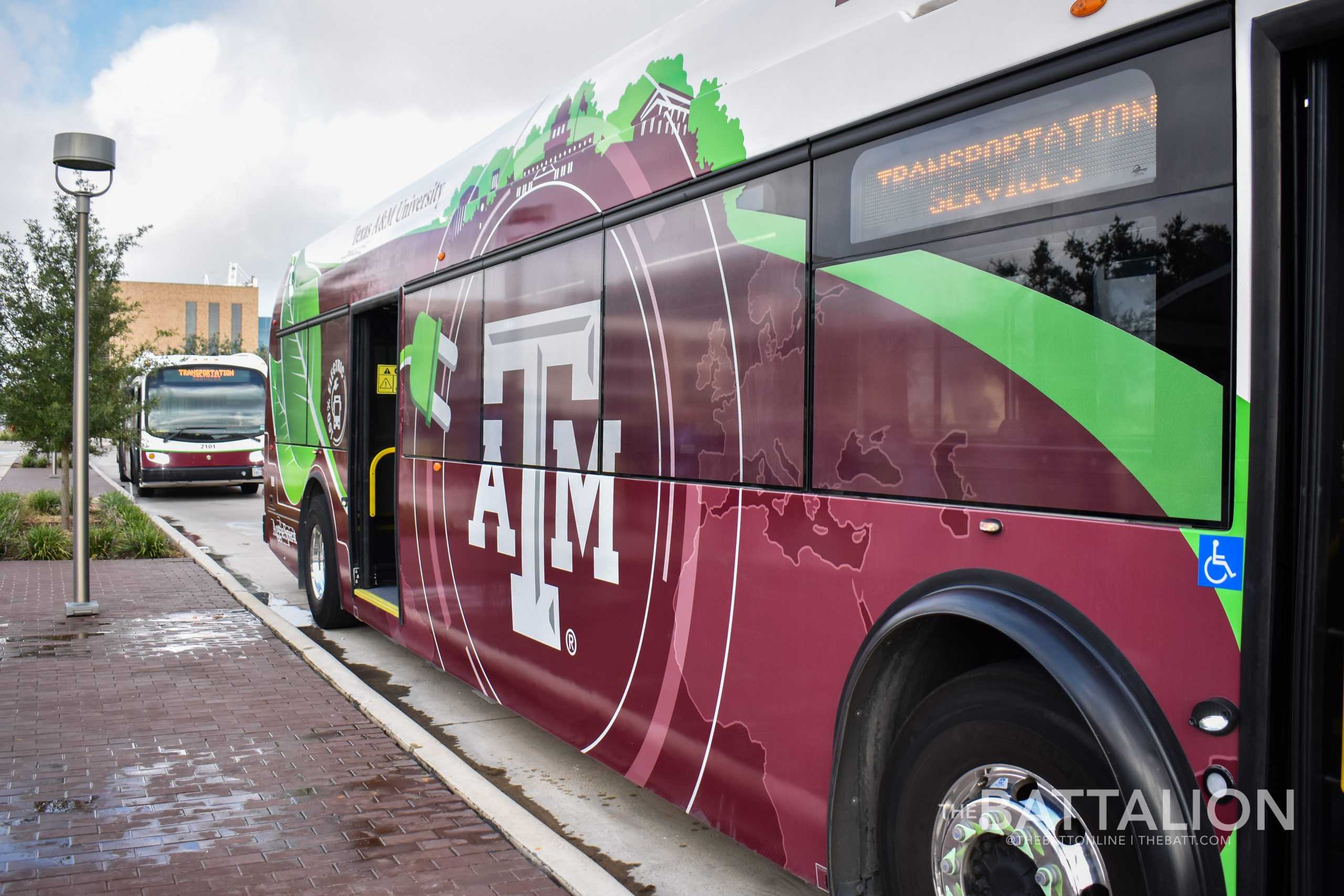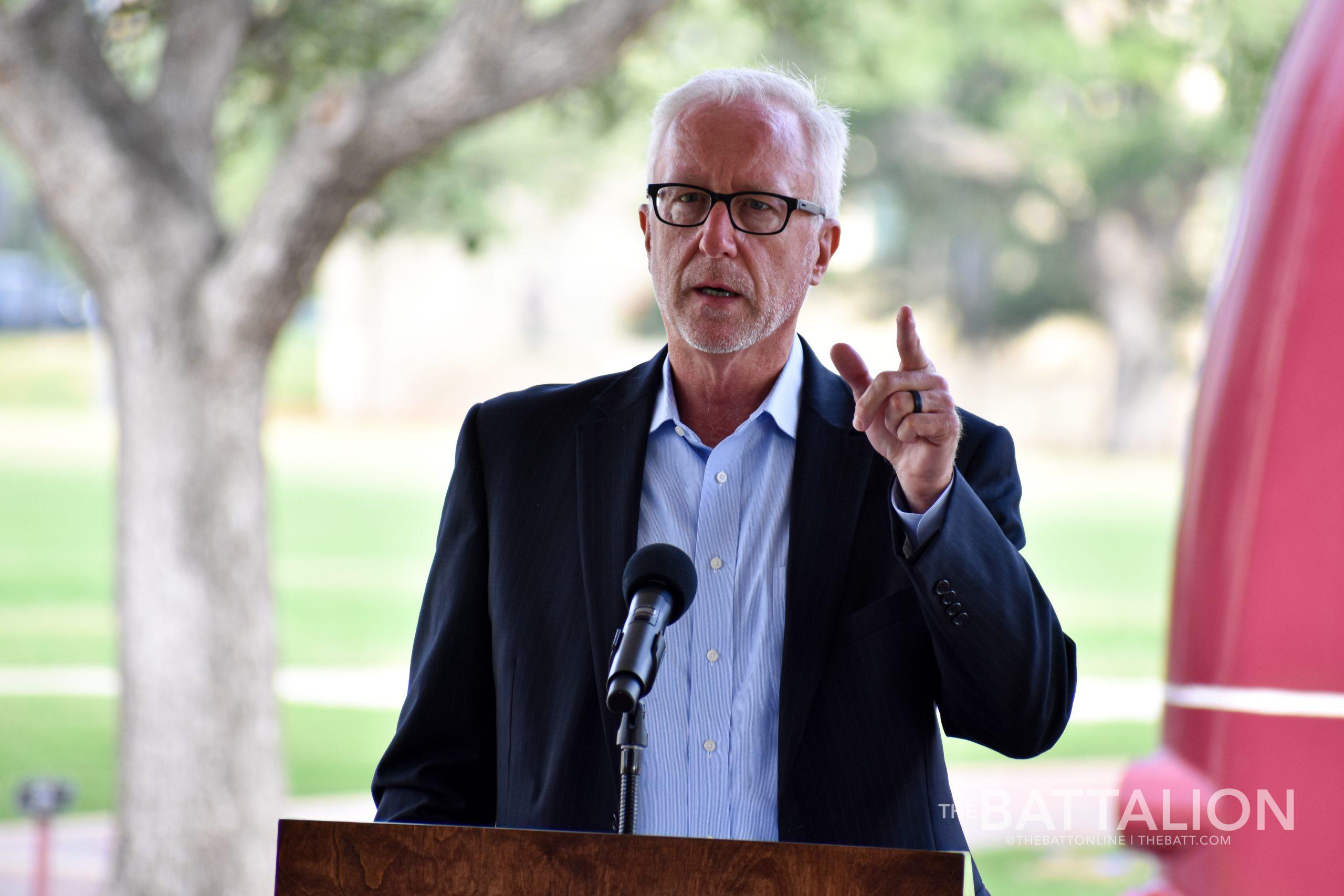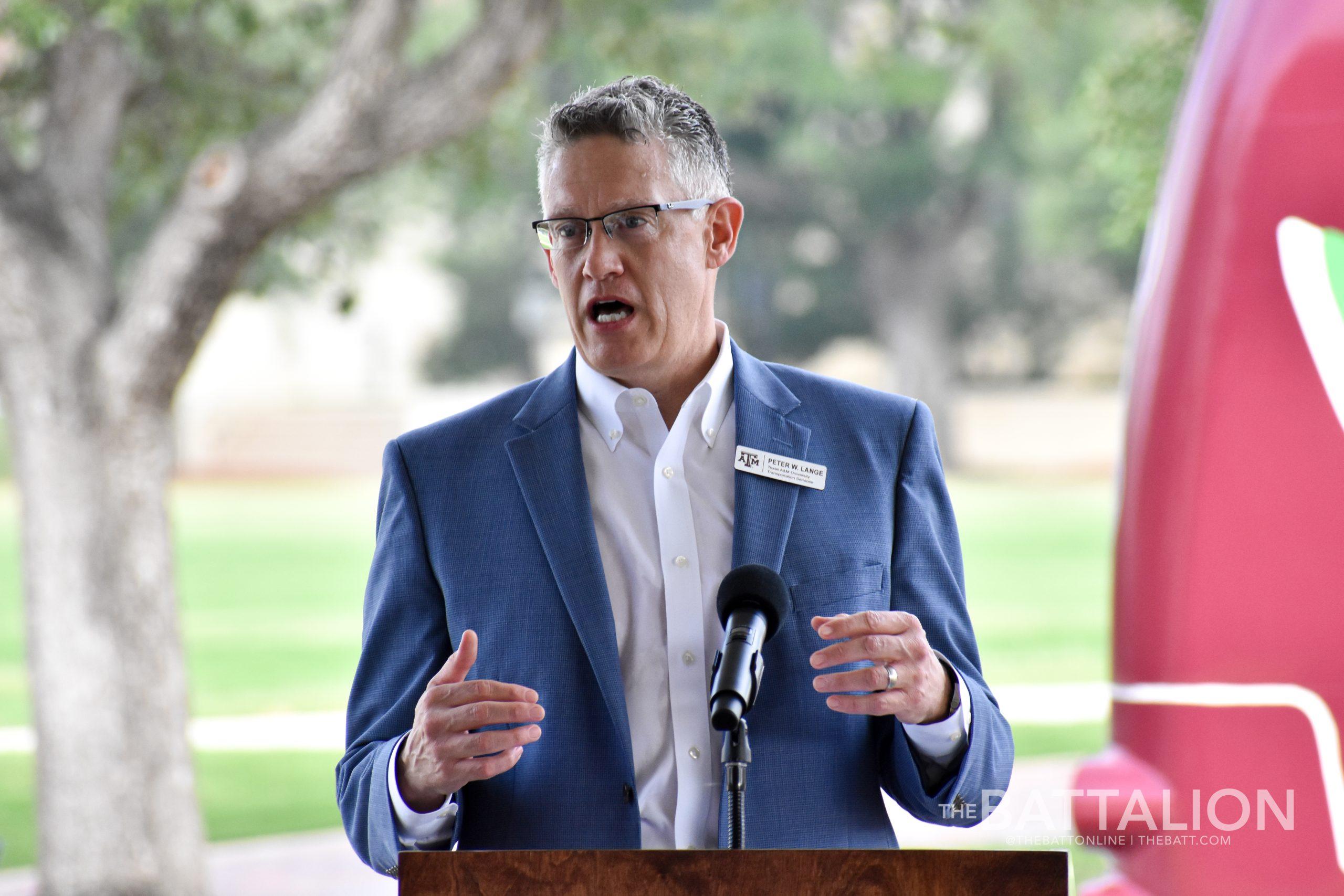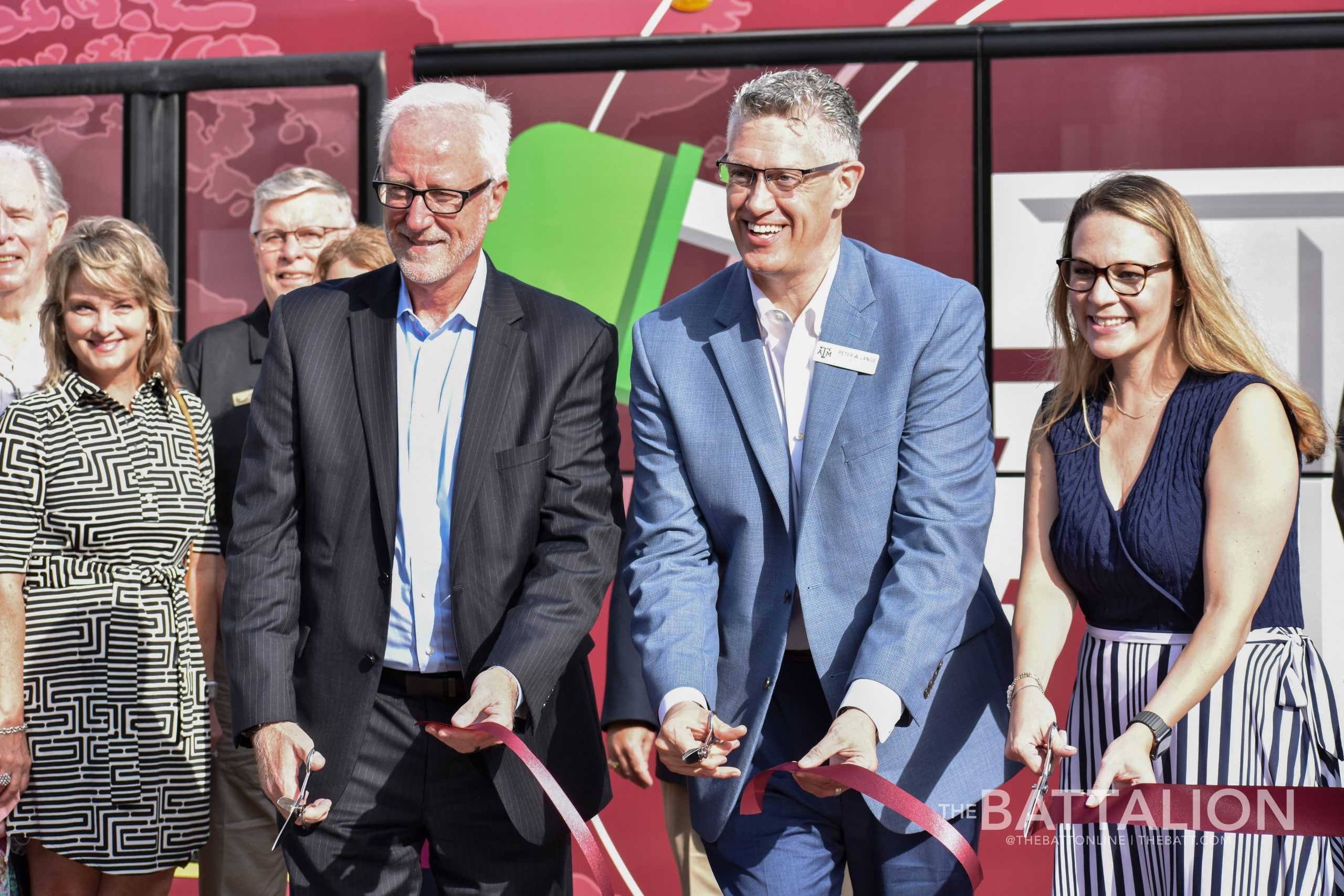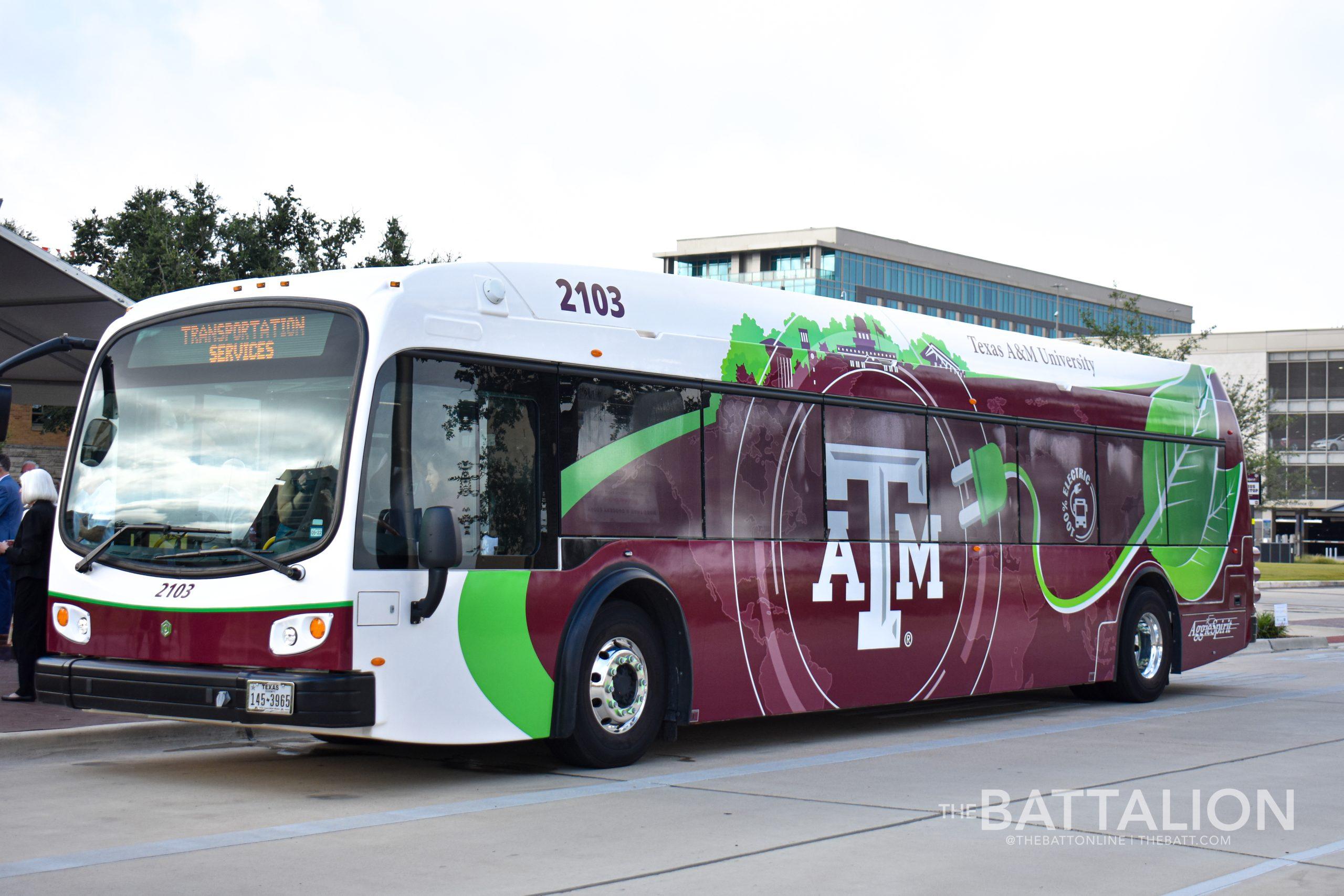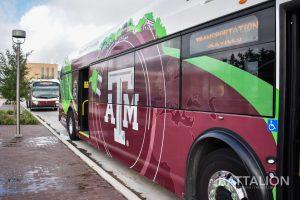Texas A&M officially has its first-ever university transit system with electric buses on the road.
On Aug. 10, the A&M Department of Transportation Services debuted the three new electric buses that have undergone four weeks of testing and training this summer. The Brazos Transit District and A&M were among five other organizations in the state of Texas to be awarded the BUILD grant by the U.S. Department of Transportation, the Vice President of Marketing & Communications for the Brazos Transit District Jo Marlow said. This grant allowed Transportation Services to replace old and costly buses in the fleet with 24 new diesel buses and the three featured Proterra ZX5 Pro Series electric buses.
As the automobile industry works to make half of all new vehicles electric by 2030, A&M will be at the forefront of this shift, Chief Operating Officer and Senior Vice President of the university Greg Hartman said.
“Bringing these buses here allows the Texas Transportation Institute to do research on this kind of technology and this kind of battery while this movement is happening in the country,” Hartman said at the debut.
Among those attending were representatives of Proterra, College Station’s Mayor Karl Mooney and City Council members from both Bryan and College Station, members of the region’s development community and the Chamber of Commerce, as well as staff from Representative Pete Sessions’ office and Senator Ted Cruz’s office.
“There really were a lot of people involved in this effort,” Hartman said. “The most important thing is how this represents the unique collaboration that we have in the Brazos Valley. We can do so much when we do this together.”
Associate Vice President for Transportation Services Peter W. Lange said the first day the buses were run, the charge necessary for a day on Bus Route 06 was worth only $14. A comparable diesel bus running the same route used $105 worth of fuel for the day, Lange said. As well, the electric buses can be fully-charged in about four hours.
“We started seeing those savings immediately,” Lange said.
During this testing period the buses were run as far as the RELLIS campus, for which the route is almost 30 miles.
“We ran it for 12 hours on that route and it still came back home with a charge,” Lange said. “We ran it on our longest on-campus route for a day and the bus came back with 70 percent charge.”
In a normal fall semester before COVID-19, Transportation Services would provide rides for approximately 50,000 passengers, Lange said. The useful “lifespan” of a bus is 12 to 15 years, but some of those retired were 20 and 21 years old, Lange said. To service this volume of passengers on time, reliability is paramount.
“It really gets to the maintenance costs and reliability of the fleet,” Lange said. “There’s no wiggle room for stuff breaking down, parts needing to be replaced and getting behind.”
This revitalization of A&M’s fleet would not have been possible without partnering with the Brazos Transit District, or BTD, Lange said. As well, collaboration between the two transit systems allows BTD to cover where the Aggie Spirit Buses don’t go, such as South College Station, Baylor-Scott & White and as far as the Reynolds & Reynolds facility. BTD already allows any students to ride for free on their buses, and conversely BTD pass-holders can ride on the Spirit Buses by showing their pass, Lange said.
“The Brazos Transit District and A&M combined provide over 8 million trips annually,” Marlow said before the ribbon-cutting ceremony. “This takes cars off the road and reduces congestion on our roadways. Transit plays a critical role in connecting people to jobs, healthcare, education and other amenities.”
Lange said A&M has already applied for another grant for six additional electric buses.
“They work well, they’ve done exactly what we’ve wanted them to do,” Lange said.
Concluding the ceremony, guests were invited to celebrate by taking inaugural rides on the new vehicles.
A&M debuts first all-electric buses
August 10, 2021
Photo by Photo by Abbey Santoro
Texas A&M’s Transportation Services Department currently has three electric buses that have been in operation throughout the summer.
0
Donate to The Battalion
$2065
$5000
Contributed
Our Goal
Your donation will support the student journalists of Texas A&M University - College Station. Your contribution will allow us to purchase equipment and cover our annual website hosting costs, in addition to paying freelance staffers for their work, travel costs for coverage and more!
More to Discover




